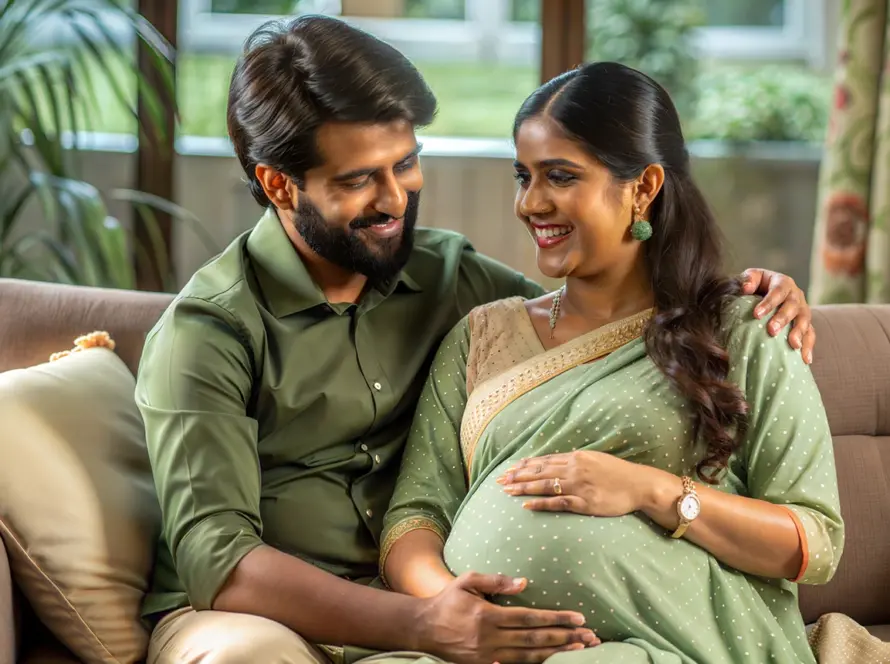Introduction
Choosing the right time to start a family is one of the most personal decisions in a woman’s life. It often involves balancing health, career, relationships, and future goals. Many women wonder:
What is the best age to get pregnant?
The answer is not one-size-fits-all. While biology plays a significant role, so does lifestyle, medical care, and personal readiness. With advancements in fertility treatments and access to specialized care, women today have more options and flexibility than ever before.
How Age Affects Fertility in Women

Biologically, fertility is closely linked to age. A woman is born with all the eggs she will ever have, around 1 to 2 million at birth. By puberty, this number drops to about 300,000 to 400,000. As the years go by, both the quantity and quality of eggs decline.
Here is how different stages of life is linked to your fertility and pregnancy:
20s: Fertility is at its peak. The chances of conception per cycle are higher, and the risk of complications is relatively low.
Early 30s: Still considered a favorable age. Fertility begins to decline slowly after 32, with a more noticeable drop after 35.
Late 30s to early 40s: Conception is still possible, but the probability decreases, and the risk of chromosomal abnormalities and pregnancy complications increases.
Understanding these natural patterns can help women plan better. But it’s equally important to remember that with proper guidance at a women healthcare center in Chennai like LIVF Fertility, age need not be the only deciding factor.
When to Consult a Specialist
Many women try to conceive naturally for months before realizing they might need medical support. A good rule of thumb is:
If you are:
Under 35 and have been trying for over 12 months without success, consider consulting a doctor.
35 or older, seek help after 6 months of trying.
Fertility specialists and gynaecologists can conduct tests to check hormone levels, ovulation patterns, sperm health, and other factors. They can then recommend treatments ranging from lifestyle changes and medication to procedures like IUI or IVF.
Early intervention not only improves the chances of pregnancy but also helps reduce emotional stress.
Lifestyle and Health Factors That Influence Fertility
While age is important, it’s not the only factor that impacts fertility. Lifestyle choices and overall health plays a significant role as well:
Nutrition:A balanced diet rich in folic acid, iron, and antioxidants supports reproductive health.
Weight:Both underweight and obesity can affect ovulation.
Stress: Chronic stress may interfere with hormonal balance.
Smoking and Alcohol: Both can lower fertility in men and women.
Medical conditions: PCOS, thyroid disorders, and endometriosis can impact fertility.
Advanced Fertility Support for Delayed Parenthood

Not every woman is ready to have children in her 20s or early 30s, and that’s perfectly valid. Career goals, financial security, or personal readiness may mean postponing parenthood.
For those planning later pregnancies, modern medicine provides options:
Egg Freezing: Preserves healthy eggs at a younger age for future use.
IVF (In Vitro Fertilization): Eggs and sperm are fertilized in a lab, and embryos are transferred to the uterus.
IUI (Intrauterine Insemination): A less invasive option, where sperm is placed directly inside the uterus.
Donor Eggs or Sperm: For cases of diminished egg reserve or male infertility.
At a pregnancy care hospital in Chennai, these treatments are performed with advanced technology and medical expertise, giving women and couples greater control over their family planning.
Emotional and Psychological Considerations
Fertility is not only a medical journey, it is also an emotional one. Delayed conception, failed treatments, or the pressure of timelines can cause anxiety, sadness, or frustration.
Joining support groups or speaking with mental health professionals can help couples cope with the ups and downs of the process.
Conclusion
The best age to get pregnant depends on more than just biology, it depends on personal readiness, medical factors, and access to supportive care. While fertility does decline with age, modern treatments and preventive measures make parenthood possible at different stages of life.
Frequently Asked Questions (FAQ)
What is the best age to get pregnant?
Medically, the 20s and early 30s are considered the most fertile years, but women can conceive successfully beyond these ages with proper care.
Can I get pregnant naturally after 35?
Yes, many women conceive naturally after 35. However, fertility declines, and risks increase, so consulting a specialist is advisable.
Is egg freezing a safe option?
Egg freezing is a safe and widely used method to preserve fertility, especially for women who plan to delay pregnancy.
How long should I try before seeking medical help?
If you are under 35, try for 12 months. If you are 35 or older, consult after 6 months.
Do lifestyle changes really improve fertility?
Yes. Maintaining a healthy weight, eating a balanced diet, reducing stress, and avoiding smoking or alcohol significantly improve fertility outcomes.
Which is better: IVF or IUI?
It depends on your specific condition. IUI is less invasive and may be recommended first, while IVF offers higher success rates in comp




